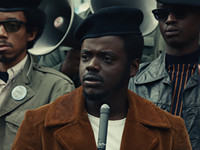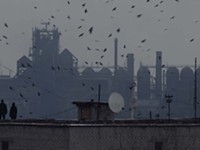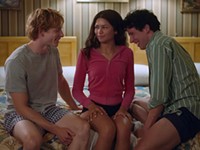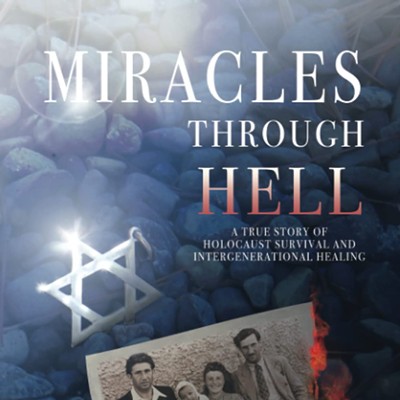[
{
"name": "500x250 Ad",
"insertPoint": "5",
"component": "15667920",
"parentWrapperClass": "",
"requiredCountToDisplay": "1"
}
]
In recent years, documented incidents from Irish history have inspired some powerful motion pictures, most notably Stephen Frears's "Philomena," which won considerable critical and commercial success in 2013. Revelations about the brutal treatment of children, including sexual abuse, by priests and the virtual imprisonment of unwed mothers in workhouses supervised by nuns, shocked Ireland, damaging the image of the Catholic Church in the Isle of Saints. Although it does not directly address that notorious situation, the new Irish movie "Calvary" employs it for context and motivation; almost every character mentions it and it serves as the reason behind its climactic action.
Appropriately for a movie about a priest, "Cavalry" begins in the confessional, where the protagonist, Father James (Brendan Gleeson), hears the anguished voice of a parishioner vowing vengeance on the clergy. He says he was abused by a bad priest as a child and has decided to kill a priest to revenge himself for the complicated agony of his life — grief, guilt, anger, a prolonged and enduring suffering. He believes he should kill a good priest — Father James — to retaliate against all the bad ones, and dares the priest to meet him on the beach on the next Sunday.
Father James naturally tries to figure out the identity of his antagonist and just what to do about the threat. His fool of a curate offers no assistance, and his bishop indulges in some unhelpful theological hairsplitting, so he simply goes about his priestly and personal business for the week before the fateful Sunday. That business provides the backbone of the film, a detailed view of the life of this decent, complex, troubled man.
A widower who entered the priesthood after his wife died, Father James has a daughter, Fiona (Kelly Reilly) who visits his small town in Sligo for the week. Bearing her own sorrow — she has attempted suicide — she blames her father for abandoning her after her mother's death, a double loss that left her with a profound loneliness.
Just about everybody in the town, moreover, bears some grudge against the Church, which they generally express to him, often insulting him in shockingly hostile terms. He tries to deal with what appears to be the abuse of a promiscuous young woman, only to discover that, according to her lover, who sneers at the priest's intentions, she likes men to hit her. The local doctor, a cynical atheist, taunts him with stories about the hopelessness of suffering children, proof of the indifference of his God.
Amid all the hostility and his awareness of the passing of the week, Father James conducts the work of his vocation, all the while revealing his strength, his patience, his courage. He brings food and medicine to his only friend, an elderly American writer (M. Emmet Walsh) and understands his desire to commit suicide rather than die by inches. He gives Last Rites to a dying man and comforts his widow, and even visits an imprisoned serial killer, a thoroughly evil man, because he asked to see him.
That hostility finally explodes into violence when an arsonist burns down his church and someone, perhaps his nemesis, kills his beloved dog. Father James himself, driven back to drink, commits an act of violence that ends in a brutal beating — it turns out that despite their own history and customs, the Irish know how to use a baseball bat.
In its understated progress through the priest's week, the picture reveals the narrowness and nastiness of most of its people — the flamboyant homosexual who incessantly imitates (badly) Jimmy Cagney, the promiscuous wife who flirts seductively with him, the coke-snorting druggie, the drunken financier facing a prison sentence for his wheeling and dealing. Small Irish towns apparently resemble American small towns, as stiflingly provincial as Winesburg, Ohio.
The cinematography contrasts with the personalities of its characters, showing the sometimes bleak beauty of the Irish countryside and seaside, which function as another sort of context for the priest's solitary journey to his own possible Calvary. Packing a terrific intensity into its understated action, "Calvary" departs from the traditional priest movie — no Bing Crosby, no Barry Fitzgerald, no Irish lullabies, just injury and reconciliation, sin and forgiveness, suffering and silence.
Speaking of...
Latest in Movie Reviews
More by George Grella
-

Film Review: "Cake"
Jan 26, 2015 -

Film Review: "American Sniper"
Jan 19, 2015 -

Film Review: "Inherent Vice"
Jan 12, 2015 - More »









